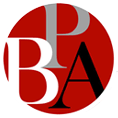-
Views
-
Cite
Cite
Filippo Ferrari, Assessment–Sensitivity, Analysis, Volume 76, Issue 4, October 2016, Pages 516–527, https://doi.org/10.1093/analys/anw021
Close - Share Icon Share
Extract
1. Relativism has long been at the centre of traditional philosophical interests. As long as it remains so, John MacFarlane’s exceptionally ingenious book Assessment Sensitivity: Relative Truth and its Applications1 is surely destined to be essential reading for philosophers working on truth and, more generally, in philosophy of language and formal semantics. It is fair to say that Assessment Sensitivity is the most powerful and comprehensive defence of relativism about truth to date.
The ideas elaborated in the book have circulated widely among philosophers since at least early 2009, generating an impressive amount of discussion and reinforcing a new wave of interest in relativism, started a few years earlier with some of the previous works by MacFarlane himself (e.g. MacFarlane 2005) and the publication of Max Kölbel’s Truth without Objectivity in 2002.
MacFarlane’s overall objective is to provide an explication of philosophical talk of ‘relative truth’ (44).2 This is to be achieved by means of two sub-projects: (i) a purely theoretical one consisting in showing that relativism about truth is a conceptually coherent position by arguing that languages containing assessment-sensitive expressions are conceptually possible; (ii) an empirical project, aimed at showing that English contains some assessment-sensitive expressions and thus that ‘true’ in English should, at least locally, be treated relativistically. To these two sub-projects are dedicated, respectively, the two main parts of the book: ‘Foundations’ (Chapters 1–6) and ‘Applications’ (Chapters 7–11). The book ends with a chapter defending the rationality of believing and asserting assessment-sensitive propositions (Chapter 12).




